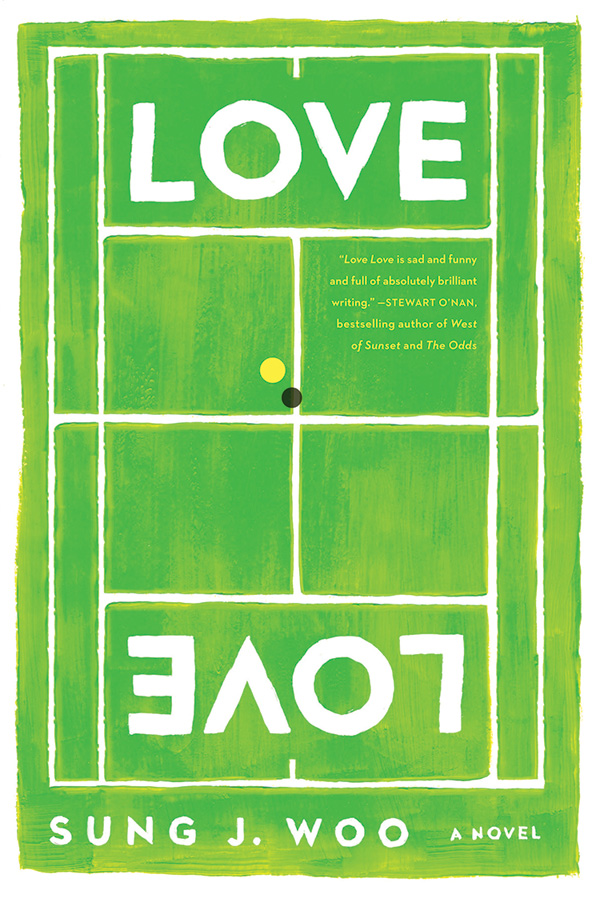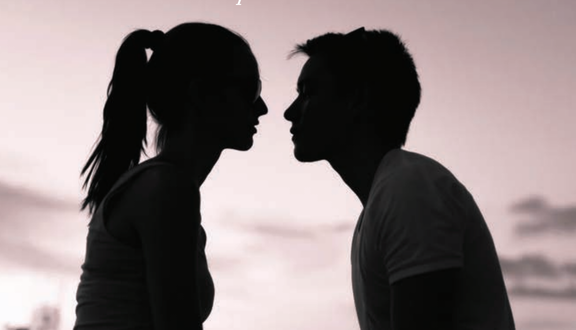In her review of Sung J. Woo’s Love Love, Euny Hong describes the book as both “a dirge and a paean to the second-generation Korean American.”
by EUNY HONG
Sung J. Woo’s elegant second novel, Love Love, was excruciating to read—and I mean that as the highest possible compliment. It asks the question: Why can’t second-generation immigrant children—in this case, Korean Americans—be happy? The grim answer: because living in a bright shiny new country does not erase the misery of previous generations. As a character in Woo’s book expresses, “Anger was more than just an emotion. It was also an unfortunate heirloom, a darkness passed down from parent to child.”
Koreans have a word for their culturally specific, genetic predisposition to misery—han. Many readers of Korean descent will find it hard to face the emotional truths Woo, a Korean American writer who lives in New Jersey (and also pens a column for this magazine), exposes in Love Love, which reads as both a dirge and a paean to the second-generation Korean American.
Love Love (release date Sept. 15, 2015, from Soft Skull/Counterpoint Press) is a joy to read, as it represents a sort of 2.0 release of the Korean American Immigrant Novel; in other words, it’s a chronicle of what happened to my generation after the glory days of academic accolades and model minority-dom became a distant memory. Ours is the generation familiar with a racist America until it became a “post-racial” America—with the unexplained absence of anything in between. When was that cross-over period of non-racial America? Did we blink and miss it? And if we are this confused, imagine how our parents must feel.
Woo, whose 2009 debut novel, Everything Asian, was a Korean American immigrant tale that was somewhat autobiographical, has accomplished something very significant with his latest work. In the tradition of such American classics as John Steinbeck’s East of Eden or Toni Morrison’s Beloved, Love Love explores the impossibility of breaking free from patterns and the hopeless fallacy that, as our parents’ offspring, we will be able to start life with a clean slate. History gets in the way. Family gets in the way. And yes, race gets in the way.
At the onset of the novel, protagonist Kevin Lee has long since learned that his father is a scoundrel who can barely speak English after a lifetime living in the U.S. He is a mediocrity of a man who was so far surpassed by his wife both intellectually and morally that he couldn’t function as a decent human being, going so far as to having an affair with his wife’s best friend while his spouse was dying of cancer. Kevin, meanwhile, is a former tennis pro who is reduced to giving lessons to the rich and their hapless, often untalented children at a country club. He listlessly serves tennis balls “to nothingness.” He’s basically staring into an abyss and waiting for it to stare back at him.
Peter’s younger sister Judy, his counterpoint in the book, is a hard-drinking, depressive one-time aspiring artist who can hardly hold down an office temp job. She agonizes in the grocery aisle over whether it’s worth paying 20 cents extra for a name-brand can of black beans.
As Love Love opens, an already disillusioned Kevin learns something even more disillusioning: The man whom he’s called “father” his entire life is not his biological father, something Kevin discovers when he reluctantly gets tested to see if he is a viable liver donor for the cancer-stricken man.
Even in the wake of this shocking news, Kevin’s overachieving rearing takes over his conscience: “My father, not my biological,’ Kevin thought. ‘I almost failed biology in high school. Maybe if I had done better, this wouldn’t have happened. Maybe if…’” [p. 19, italics in original].
And that’s not all. Kevin’s mother isn’t related by blood, either. In fact, he was adopted as an infant. When he does eventually meet his biological father, he’s told something no one would want to hear: “I was a porn actor, and so was your mother. That’s how we met, and that’s how you came to be.”
These startling events draw into focus the book’s central question: What degree of closure is needed for a person to feel whole?
Once the Ivy League days are past, the Tiger Parent grip is released and reaction to the boring old wails about their parents’ frigging sacrifices stop, alpha Korean Americans must face their fates without anyone to blame. And that’s what Love Love does such a spot-on job capturing.
Euny Hong is the author of The Birth of Korean Cool: How One Nation is Conquering the World through Pop Culture (Picador 2014) and the novel Kept: A Comedy of Sex and Manners (Simon & Schuster 2006). Follow her on Twitter @euny.
____
This article was published in the August/September 2015 issue of KoreAm. Subscribe today! To purchase a single issue copy of the August/September issue, click the “Buy Now” button below. (U.S. customers only. Expect delivery in 5-7 business days.)





